#benjamin whitrow
Explore tagged Tumblr posts
Text

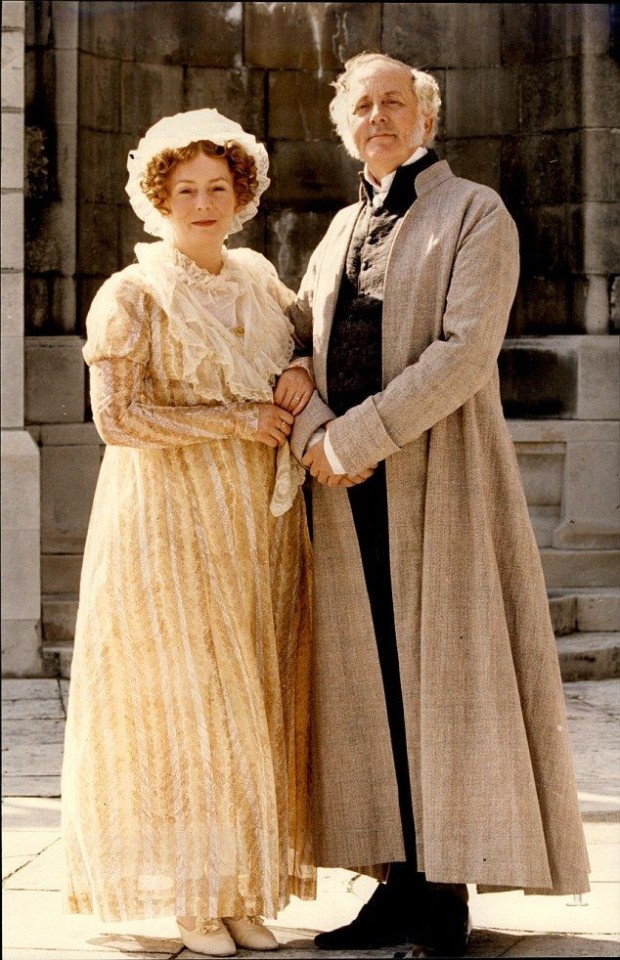

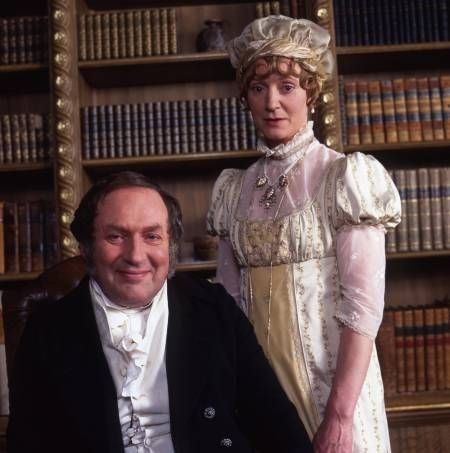
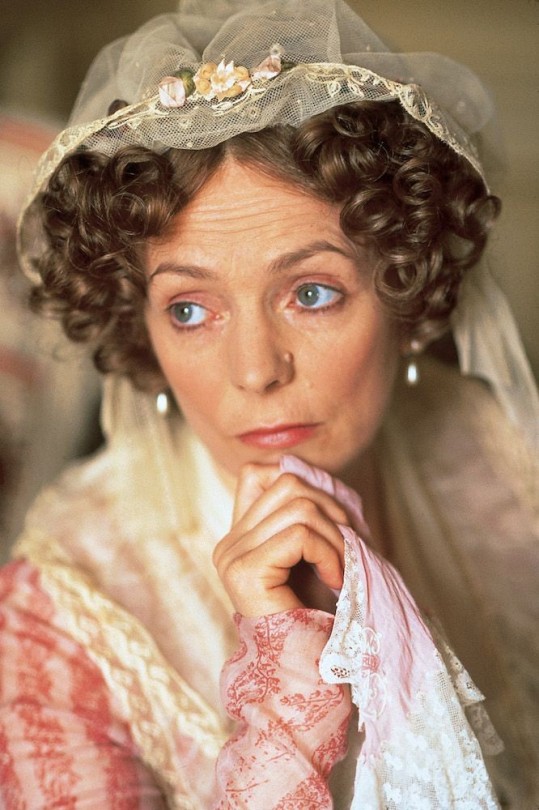
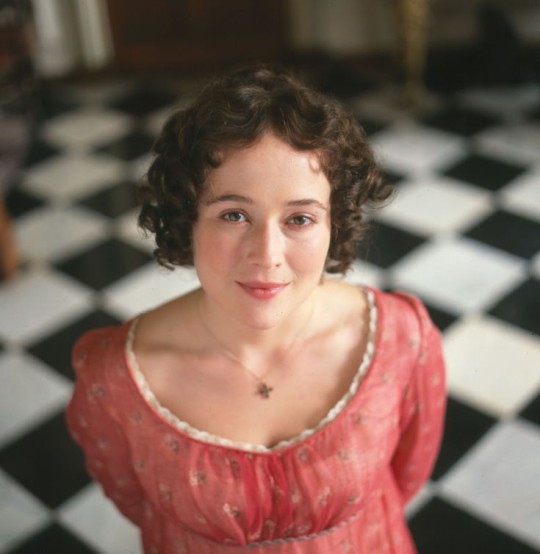




PRIDE AND PREJUDICE (1995)
#pride and prejudice#pride and prejudice 1995#miniseries#period drama#jane austen#colin firth#jennifer ehle#barbara leigh-hunt#alison steadman#crispin bonham-carter#anna chancellor#susannah harker#benjamin whitrow#julia sawalha#david bamber#emilia fox
831 notes
·
View notes
Text

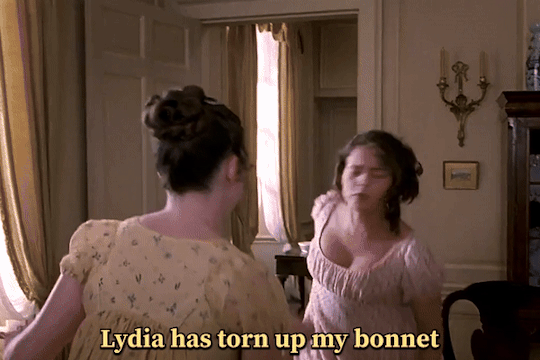
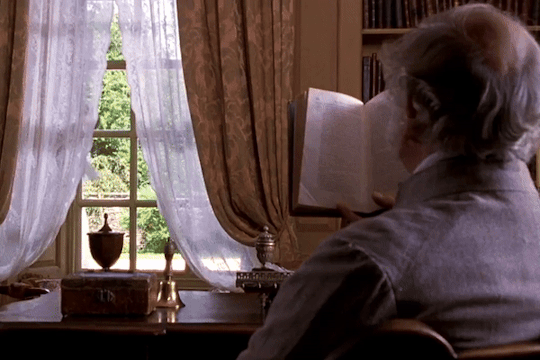


Pride & Prejudice (1995) Episode 01
#Pride & Prejudice (1995)#Episode 01#Elizabeth Bennet#Lydia Bennet#Catherine Bennet#Mr. Bennet#Jennifer Ehle#Julia Sawalha#Polly Maberly#Benjamin Whitrow
29 notes
·
View notes
Text
Mr. Bennet. The Witty, Flawed Patriarch Of Pride And Prejudice
youtube
Nobody is perf...
There's a Jane Austen documentary out there where Benjamin Whitrow says he once met an old lady who knew an old lady who knew an old lady who knew another old lady... who had once known Jane Austen. And that she said that of all the JA characters Mr. Bennett was the one who most resembled JA herself spiritually. LOL.
Ah yes, here it is.
youtube
4 notes
·
View notes
Text
Damn, Midsomer Murders season 12 is a 1995 Pride & Prejudice reunion. We got Mr Bennet, Jane and Mr Collins popping up like nobody's business
2 notes
·
View notes
Text
"THE HISTORY OF TOM JONES, A FOUNDLING" (1997) Review

"THE HISTORY OF TOM JONES, A FOUNDLING" (1997) Review
The year 1963 saw the release of Tony Richardson's Academy Award winning adaptation of Henry Fielding's 1749 novel, "The History of Tom Jones, a Foundling". Another thirty-four years passed before another adaptation of the novel appeared on the scene. It turned out to be the BBC's five-episode miniseries that aired in 1997.
"THE HISTORY OF TOM JONES, A FOUNDLING" is a comic tale about the life and adventures of an English foundling, who is discovered in the household of a warm-hearted landowner in Somerset named Squire Allworthy. The latter adopts the child and Tom Jones grows up to be a lusty, yet kindly youth; who falls in love with one Sophia Western, the only child of Allworthy's neighbor, Squire Western. Tom is raised with the squire's nephew, a falsely pious and manipulative young man named Mr. Blifil. Because the latter is Allworthy's heir, Sophia's father wishes her to marry Mr. Blifil, so that the Allworthy and Western estates can be joined as one. Unfortunately for Squire Western and Mr. Blifil, Sophia is in love with Tom. And unfortunately for the two young lovers, Tom is discredited by Mr. Blifil and his allies before being cast away by Squire Allworthy. In defiance of Squire Western's wishes for her to marry Mr. Blifil, Sophia (accompanied by her maid, Honour) runs away from Somerset. Both Tom and Sophia encounter many adventures on the road to and in London, before they are finally reconciled.
Actually, there is a lot more to "THE HISTORY OF TOM JONES, A FOUNDLING". But a detailed account of the plot would require a long essay and I am not in the mood. I have noticed that the 1997 miniseries has acquired a reputation for not only being a first-rate television production, but also being superior to the 1963 Oscar winning film. As a five-part miniseries, "THE HISTORY OF TOM JONES, A FOUNDLING" was able to adhere more closely to Fielding's novel than the movie. But does this mean I believe that the miniseries is better than the movie? Hmmmm . . . I do not know if I can agree with that opinion.
I cannot deny that "THE HISTORY OF TOM JONES, A FOUNDLING" is a well made television production. Director Metin Hüseyin did an excellent job of utilizing a first-rate production crew for the miniseries. Cinders Forshaw's photography was well done - especially in Somerset sequences featured in the miniseries' first half. Roger Cann's production designs captured mid-18th century England in great detail. And Rosalind Ebbutt's costumes designs were not only exquisite, but nearly looked like exact replicas of the fashions of the 1740s. The look and style of "THE HISTORY OF TOM JONES, A FOUNDLING" seemed to recapture the chaos and color of mid-18th century England.
"THE HISTORY OF TOM JONES, A FOUNDLING" could also boast some first-rate performances. The miniseries featured solid performances from the likes of Christopher Fulford and Richard Ridings as Mr. Blifil's allies, Mr. Square and Reverend Thwackum; Kathy Burke, who was very funny as Sophia's maid, Honour; Celia Imrie as Tom's London landlady, Mrs. Miller; Peter Capaldi as the lecherous Lord Fellamar; Tessa Peake-Jones as Squire Allworthy's sister Bridget and Benjamin Whitrow as the squire. The episode also featured solid turns from the likes of Kelly Reilly, Michelle Fairley, Camille Coduri, Matt Bardock, Roger Lloyd-Pack, and Sylvester McCoy. Max Beesley was solid as Tom Jones. He also had good chemistry with his leading lady, Samantha Morton, and did a good job in carrying the miniseries on his shoulders. However, I do feel that he lacked the charisma and magic of Albert Finney. And there were times in the miniseries' last two episodes, when he seemed in danger of losing steam.
But there were some performances that I found outstanding. Brian Blessed was deliciously lusty and coarse as Squire Western, Allworthy's neighbor and Sophia's father. I really enjoyed his scenes with Frances de la Tour, who was marvelous as Sophia's snobbish and controlling Aunt Western. Lindsay Duncan gave a subtle performance as the seductive Lady Bellaston. James D'Arcy was outstanding as Squire Allworthy's nephew, the sniveling and manipulative Mr. Blifil. Ron Cook gave the funniest performance in the miniseries, as Tom's loyal sidekick, Benjamin Partridge, who had earlier suffered a series of misfortunes over the young man's birth. Samantha Morton gave a superb performance as Tom's true love, Sophia Western. Morton seemed every inch the graceful and passionate Sophia, and at the same time, conveyed the strong similarities between the young woman and her volatile father. But the one performance I truly enjoyed was John Sessions' portrayal of author Henry Fielding. I thought it was very clever to use Sessions in that manner as the miniseries' narrator. And he was very entertaining.
The producers of the miniseries hired Simon Burke to adapt the novel for television. And I believe he did an excellent job. I cannot deny that the miniseries' running time allowed him to include scenes from the novel. Thanks to Burke's script and Hüseyin's direction, audiences were given more details on the accusations against Jenny Jones and Benjamin Partridge for conceiving Tom. Audiences also experienced Bridget Jones' relationship with her cold husband and the circumstances that led to the conception of Mr. Blifil. Judging from the style and pacing of the miniseries, it seems that Hüseyin was inspired by Tony Richardson's direction of the 1963 film. There were plenty of raunchy humor and nudity to keep a viewer occupied. More importantly, "THE HISTORY OF TOM JONES, A FOUNDLING" proved to be a fascinating comic epic and commentary on class distinctions, gender inequality and social issues.
However, I still cannot agree with the prevailing view that the miniseries is better than the 1963 movie. Mind you, the latter is not perfect. But the miniseries lacked a cinematic style that gave the movie a certain kind of magic for me. And due to Hüseyin and Burke's insistence on being as faithful to the novel as possible, the miniseries' pacing threatened to drag in certain scenes. The scenes featuring Tom and Partridge's encounter with an ineffectual highwayman, their viewing of a puppet show, and a good deal from the London sequences were examples of the miniseries' slow pacing. I could not help feeling that "THE HISTORY OF TOM JONES, A FOUNDLING" could have easily been reduced to four episodes and still remain effective.
I also had a few problems with other matters. One, I never understood why Lady Bellaston continued her campaign to get Sophia married to Lord Fellamar, after Squire Western prevented the peer from raping his daughter. Why did she continued to make life miserable for Tom after receiving his marriage proposal . . . the same proposal that she rejected with contempt? And what led Sophia to finally forgive Tom for the incident with Mrs. Waters at Upton and his marriage proposal to Lady Bellaston? After he was declared as Squire Allworthy's new heir, Sophia refused to forgive Tom for his affair with Lady Bellaston. But the next shot featured Tom and Squire Allworthy returning to Somerset . . . and being greeted by Sophia, along with hers and Tom's children. WHAT HAPPENED? What led Sophia to finally forgive Tom and marry him? Instead of explaining or hinting what happened, Burke's script ended on that vague and rather disappointing note.
But despite my problems with "THE HISTORY OF TOM JONES, A FOUNDLING", I cannot deny that I found it very enjoyable. Director Metin Hüseyin and screenwriter Simon Burke did a first-rate job in bringing Henry Fielding's comic opus to life. They were ably assisted by an excellent production staff and fine performances from a cast led by Max Beesley and Samantha Morton.
#tom jones#the history of tom jones#henry fielding#max beesley#samantha morton#benjamin whitrow#tessa peake jones#brian blessed#frances de la tour#james d'arcy#richard ridings#camille coduri#john sessions#kathy burke#lindsay duncan#peter capaldi#roger lloyd-pack#sylvester mccoy#jacobite rising#celia imrie#kelly reilly#michelle fairley#metin huseyin#simon burke#julian firth#michael cronin#ron cook#tom jones 1963#tony richardson#brian pettifer
2 notes
·
View notes
Text

#Chicken Run#Phil Daniels#Lynn Ferguson#Mel Gibson#Tony Haygarth#Jane Horrocks#Miranda Richardson#Julia Sawalha#Timothy Spall#Imelda Staunton#Benjamin Whitrow#Peter Lord#Nick Park#2000
17 notes
·
View notes
Text







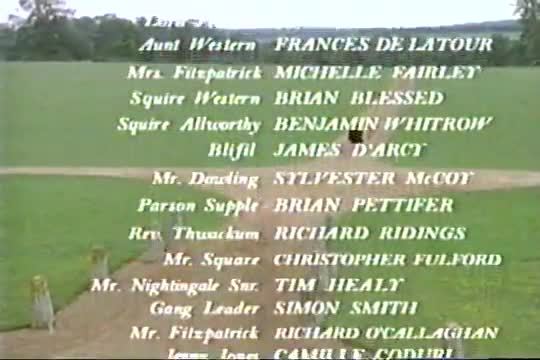

The History of Tom Jones: A Foundling - BBC One - November 9, 1997 - December 7, 1997
Historical (5 episodes)
Running Time: 60 minutes
Stars:
John Sessions as Henry Fielding
Benjamin Whitrow as Squire Allworthy
Brian Blessed as Squire Western
Max Beesley as Tom Jones
Samantha Morton as Sophia Western
Frances de la Tour as Aunt Western
Ron Cook as Mr Partridge
Richard Ridings as Reverend Thwackum
Christopher Fulford as Mr. Square
Michael Cronin as Dr. Blifil
Sylvester McCoy as Mr Dowling
James D'Arcy as Blifil
Peter Capaldi as Lord Fellamar
Michelle Fairley as Mrs Fitzpatrick
Lindsay Duncan as Lady Bellaston
Kathy Burke as Honour
Brian Pettifer as Parson Supple
Camille Coduri as Jenny Jones
Celia Imrie as Mrs. Miller
Kelly Reilly as Nancy Miller
Matt Bardock as Jack Nightingale
Sara Kestelman as Mrs. Wilkins
Tessa Peake-Jones as Bridget Allworthy
Doreene Blackstock as Abigail
Richard O'Callaghan as Mr. Fitzpatrick
Roger Lloyd Pack as Anderson
Brian Hibbard as George Seagrim
Con O'Neill as Captain Blifil
Rachel Scorgie as Molly Seagrim
Jane Danson as Betty Seagrim
Alexei Sayle as Puppeteer
Neil Dudgeon as Puppeteer's Assistant
Paul Barber as Adderley
Julian Firth as Northerton
Rupert Holliday-Evans as Lord Connaught
Amy Marston as Susan
Norman Lovett as Mr. Follett
June Whitfield as Mrs. Whitfield
Tim Healy as Mr. Nightingale Sr.
#The History of Tom Jones: A Foundling#TV#BBC One#1997#1990's#Historical#John Sessions#Benjamin Whitrow#Brian Blessed#Max Beesley#Samantha Morton
6 notes
·
View notes
Text
Such a great movie!!! Everyone is great in it!









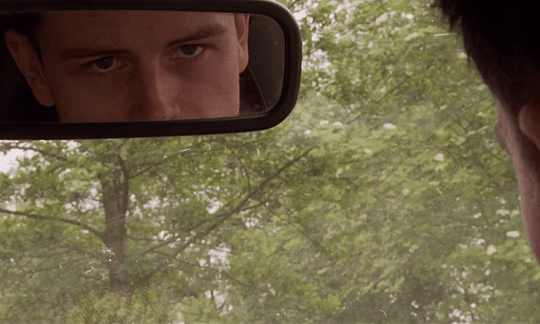
Shane Taylor — Bomber (2/14)
80 notes
·
View notes
Text
Galline in fuga
Benvenuti o bentornati sul nostro blog. Nello scorso articolo abbiamo ripreso a parlare dell’animazione e ci siamo spostati in casa DreamWorks, arrivando a discutere del loro terzo lungometraggio animato ossia Giuseppe – Il re dei sogni. Rachele, moglie di Giacobbe, partorisce un bambino che chiamano Giuseppe e la venuta di quest’ultimo viene vista come un miracolo, in quanto la donna era…
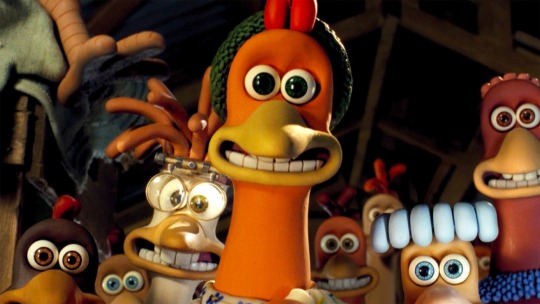
View On WordPress
#Aard-man#Aardman#Aardman Animations#animated movie#Animation#animazione#Benjamin Whitrow#Chicken Run#claymotion#David Sproxton#DreamWorks#DreamWorks Animation#DreamWorks SKG#fascismo#femminism#femminismo#film#film d&039;animazione#Frank Passingham#Galline in fuga#Ginger#Harry Gregson-Williams#Imelda Staunton#Jake Eberts#Jane Horrocks#Jeffrey Katzenberg#John Powell#Julia Sawalha#Karey Kirkpatrick#La Grande Fuga
1 note
·
View note
Text

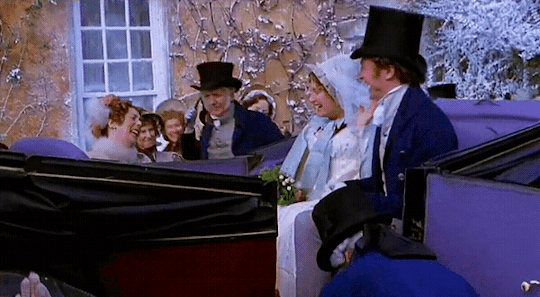




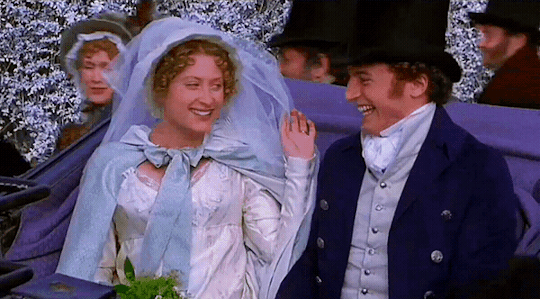

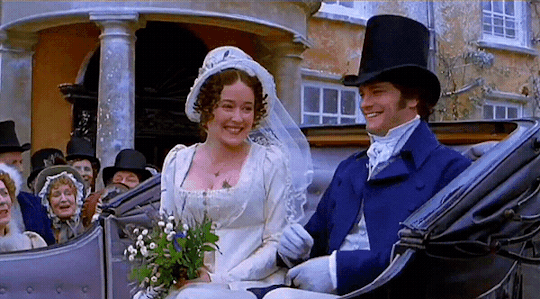

PRIDE AND PREJUDICE (1995)
dir. simon langton
#pride and prejudice 1995#pride and prejudice#jane austen#elizabeth bennet#fitzwilliam darcy#mr bingley#jane bennet#mr bennet#mrs bennet#jennifer ehle#colin firth#crispin bonham carter#susannah harker#alison steadman#benjamin whitrow#my gifs#mine
117 notes
·
View notes
Text
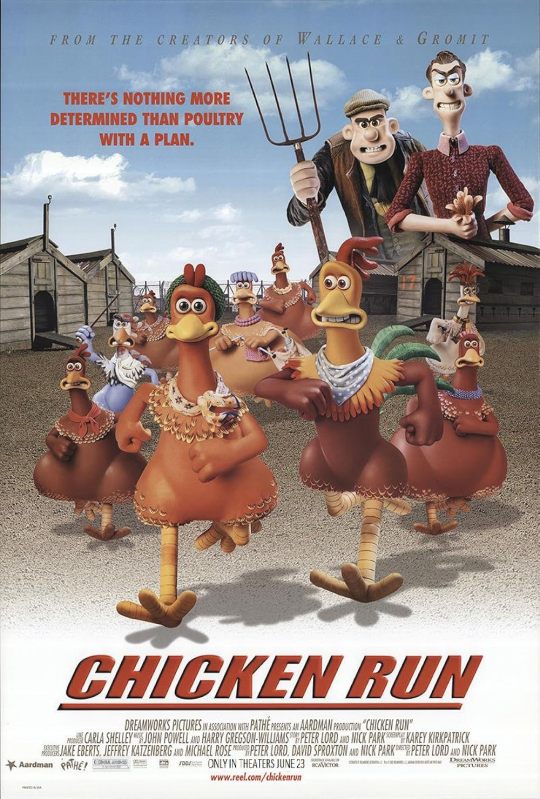
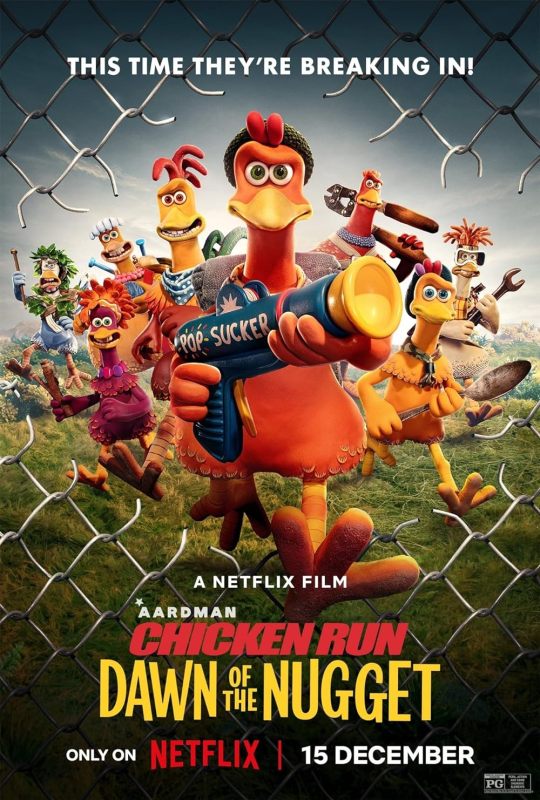
Title: Chicken Run
Rating: G
Director: Nick Park, Peter Lord
Cast: Julia Sawalha, Mel Gibson, Imelda Staunton, Jane Horrocks, Lynn Ferguson, Miranda Richardson, Tony Haygarth, Benjamin Whitrow, Timothy Spall, Phil Daniels, Lisa Kay, John Sharian, Laura Strachan, Wyatt Shears, Jo Allen, Peter Sallis
Release year: 2000
Genres: comedy, adventure
Blurb: Having been hopelessly repressed and facing eventual certain death at the British chicken farm where they are held, Ginger the chicken and Rocky the American rooster decide to rebel, leading their fellow chickens in a great escape from the murderous farmers Mr. and Mrs. Tweedy and their farm of doom.
#chicken run#dawn of the nugget#g#nick park#peter lord#julia sawalha#mel gibson#imelda staunton#jane horrocks#lynn ferguson#2000#comedy#adventure
6 notes
·
View notes
Note
Character ask: Mr. and Mrs. Bennet (Pride and Prejudice)
Favorite thing about them: They're both funny characters in their different ways: Mr. Bennet intentionally, Mrs. Bennet unintentionally.
Least favorite thing about them: Well, they're both basically terrible parents to their daughters and terrible spouses to each other. Mrs. Bennet's own foolish behavior makes all the troubles she worries about much worse, while Mr. Bennet's habit of doing nothing except mocking it all is both unkind and irresponsible.
On a meta level, I do sometimes wonder if Austen's portrayal of Mrs. Bennet shows classism (since her socially ignorant behavior stems at least in part from her lower-class background – although her brother Mr. Gardiner doesn't share her faults), and/or internalized misogyny (while Mr. Bennet's flaws are made clear, we never quite lose the sense that Mrs. Bennet is meant to be seen as worse). I understand why so many readers think her portrayal is unfair and mean-spirited, though I'm not sure if I agree.
Three things I have in common with them:
Mrs. Bennet:
*I can be neurotic.
*I can be over-enthusiastic.
*I sometimes make social faux pas.
Mr. Bennet:
*I prefer reading to socializing.
*I can be irresponsible, especially with money.
*I like Elizabeth Bennet.
Three things I don't have in common with them:
Mrs. Bennet:
*I'm not a middle-aged British woman.
*I'm not married and don't have children.
*If I had daughters, even if I lived in Georgian England, I would rather they stay single than be married to the likes of Mr. Collins or Wickham.
Mr. Bennet:
*I'm not a middle-aged British man.
*I'm less witty than he is.
*If I had children, I would remember my duties to them.
Favorite line:
Mr. Bennet:
"You mistake me, my dear. I have a high respect for your nerves. They are my old friends. I have heard you mention them with consideration these last twenty years at least."
"An unhappy alternative is before you, Elizabeth. From this day you must be a stranger to one of your parents. Your mother will never see you again if you do not marry Mr. Collins, and I will never see you again if you do."
Mrs. Bennet:
"Nobody can tell what I suffer! But it is always so. Those who do not complain are never pitied."
brOTP: Mr. Bennet: His favorite daughter Elizabeth, if anyone. Mrs. Bennet: Her sister Mrs. Phillips, and her favorite daughter Lydia.
OTP: Each other, if only because that's what they deserve. Ideally, though, other people whom they never met.
nOTP: Any of their daughters or their daughters' husbands.
Random headcanon: Mrs. Bennet's first name is Jane. Just because the 1995 miniseries calls her "Fanny" doesn't make that name canon, and in the 18th and 19th centuries, it was common for one daughter in a family, usually the eldest, to be named after her mother.
Unpopular opinion: We don't need to choose whether to side with Mr. Bennet or Mrs. Bennet. This isn't a case of "one is right, the other is wrong" or "one is the good parent, the other is the bad parent." They both have sympathetic qualities, yet they both have glaring faults that nearly ruin their daughters' futures too. The old-school viewpoint of "Mr. Bennet is the likable, sensible parent; Mrs. Bennet is an idiot" and the more recently popular viewpoint of "Mrs. Bennet is just trying to secure her daughters' futures; Mr. Bennet is the bad parent" are both faulty and reductive.
Song I associate with them: None.
Favorite picture of them:
This illustration:
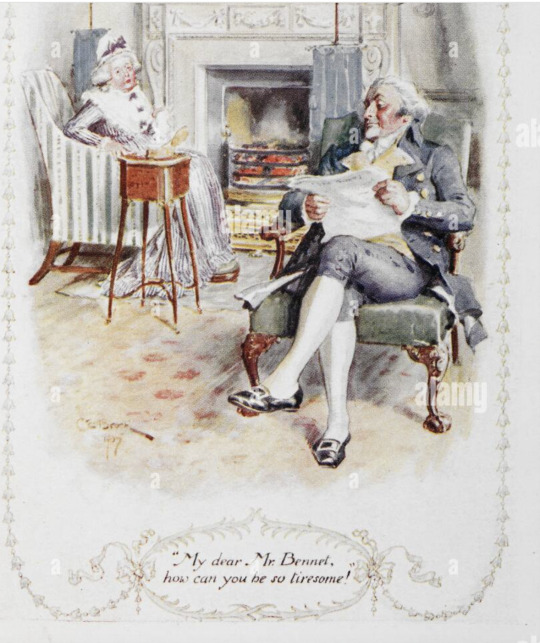
And this one:

Mary Boland and Edmund Gwenn in the 1940 film (dressed in costumes from the wrong time period, but I couldn't resist the sight of Hollywood's iconic Santa Claus from the original Miracle on 34th Street looking very unlike Santa as Mr. Bennet):

Benjamin Whitrow and Alison Steadman in the 1995 BBC miniseries:


Donald Sutherland and Brenda Blethyn in the 2005 film:

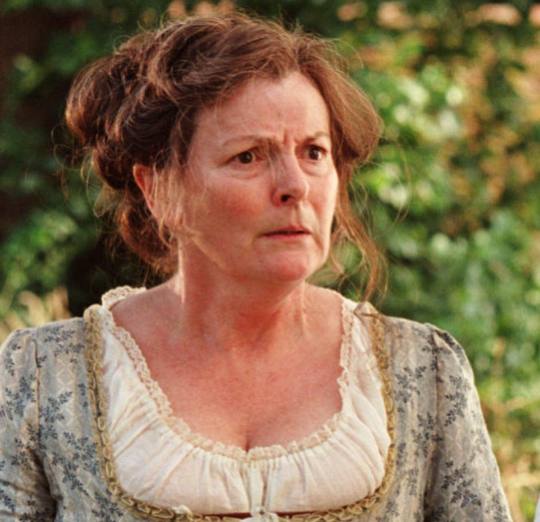
#character ask#pride and prejudice#mr. bennet#mrs. bennet#ask game#fictional characters#fictional character ask
13 notes
·
View notes
Text
youtube
CAST
Michael Hordern - King Lear
Frank Middlemass - Fool
Sarah Badel - Goneril
Penelope Wilton - Regan
Angela Down - Cordelia
Michael Jayston - Edmund
Ronald Pickup - Edgar
Ewan Hooper - Earl of Kent
Anthony Nicholls - Earl of Gloucester
John Shrapnel - Duke of Cornwall
Benjamin Whitrow - Duke of Albany
Donald Gee - Oswald
David Horovitch - Duke of Burgundy
David Neal - King of France
3 notes
·
View notes
Text
Yes, I've watched this full miniseries 37 times.
Script below the break
Hello and welcome back to The Rewatch Rewind! My name is Jane, and this is the podcast where I count down my top 40 most frequently rewatched movies in a 20-year period. Today I will be talking about number two on my list: BBC and A&E’s 1995 mini-series Pride and Prejudice, directed by Simon Langton, written by Andrew Davies, based on the novel by Jane Austen, and starring Jennifer Ehle and Colin Firth.
Mr. and Mrs. Bennet (Benjamin Whitrow and Alison Steadman) have five daughters: beautiful and kind Jane (Susannah Harker), witty and strong-willed Elizabeth (Jennifer Ehle), homely and puritanical Mary (Lucy Briers), well-meaning but naïve Kitty (Polly Maberly), and frivolous and spoiled Lydia (Julia Sawalha). Because there are no Bennet sons, Mr. Bennet’s estate is entailed upon his cousin Mr. Collins (David Bamber), and the daughters are aware that at least one of them must marry well to provide for the rest of the family after their father’s death. When wealthy and friendly Mr. Bingley (Crispin Bonham-Carter) moves into the neighborhood, he and Jane quickly hit it off, and the Bennets’ problems seem to be over. However, Mr. Bingley’s sisters, Caroline (Anna Chancellor) and Louisa (Lucy Robinson), along with his unpleasant, proud friend Mr. Darcy (Colin Firth) have strong objections to the Bennet family, who strike them as undignified gold-diggers, even though Mr. Darcy unwillingly finds himself strangely drawn to Elizabeth.
Okay so yes, this is technically a TV show rather than a movie, but even though it’s over five hours long, I still tend to watch it as a movie, and it felt right to count it as such, although when I first wrote it down in my movie notebook, I never anticipated that it would become my second most-frequently-rewatched. I remember that my parents were really into it, and at some point when it was on TV after we finally got a VCR, they had taped it. I tried to watch it with them a few times when I was younger, but I found the flowery language difficult to understand, and I typically fell asleep in the middle without knowing what was going on. The first time I watched it and actually paid attention was in 2005, and the main thing I remember was that my dad assumed I knew the story by then and kept making spoilery comments. I don’t think I fully appreciated it at that point, but I definitely enjoyed it more than I thought I was going to. I ended up watching it twice in that year and then five times in 2006, which is when it became one of my favorite stories. I read the book and watched a few other adaptations that year. In 2007 I only watched this series once, but that was also the year that my family ended up getting two male puppies, and after much deliberation about what to name them, we determined that Bingley and Darcy were the best names that went together and represented something we all enjoyed. After that, I watched it three times in 2008, once in 2009, twice in 2010, four times in 2011, twice in 2012, twice in 2013, four times in 2014, once in 2015, once in 2016, twice in 2017, once in 2018, three times in 2020, once in 2021, and twice in 2022. I don’t remember exactly when, but somehow between my siblings, my parents, and I, we ended up with three copies of this on DVD in addition to the taped one. I should also mention that I only counted it when I watched the whole thing from start to finish within a few days, so I’ve watched it like that 37 times, but I’ve definitely seen pieces of it way more than that. I keep waiting to get tired of watching it, but every time I put it on, it remains delightfully enjoyable.
I know that Pride and Prejudice by Jane Austen is one of the most beloved stories in the English-speaking world, and probably beyond – although the number of people confused by my dogs’ names taught me that not everyone is particularly familiar with it – and that it has been adapted and retold dozens of times, and that fans of the story have very strong opinions about which is the “best” adaptation. The loudest debate is between this version and the 2005 film directed by Joe Wright and starring Keira Knightley and Matthew Macfadyen. The first time I watched that version was in 2006, in the midst of my mania for the 1995 version, and I thought it was terrible. I knew it had to be shorter for the feature film format, but they cut out so many of my favorite parts! It wasn’t until I rewatched the 2005 version in 2016 that I understood that the people who prefer that version love this story for very different reasons from me. If you’re mostly invested in the Elizabeth/Darcy romance, that’s the version for you. It’s all about the tension and chemistry between those two characters, and everyone else is kind of stuck in as an afterthought. But even though the Bennet daughters’ need to get married is central to the plot, I had never considered the main appeal of this story to be its romance. To 2023 me and you the listener, who know that I’m aromantic, that isn’t very surprising, but at the time it kind of blew my mind to learn that so many fans of the story are there for that slow burn. Even in 2012 to 2013, when The Lizzie Bennet Diaries was coming out, I figured the reason people were so obsessed with Darcy was because not seeing him until episode 60 added to his mystique. At the end of that show, I was way more concerned about Lydia’s story than Lizzie’s, and while I enjoyed seeing Lizzie and Darcy finally get together, it was more of a “yay, things are happy now” relief than squeeing over the adorable romance. Anyway, while I used to be one of those obnoxiously pretentious fans who maintained that the 1995 adaptation was way better than the 2005 one, now I’m more of the opinion that they’re both good, just different, and just because I prefer one over the other doesn’t actually make it better. So if you’re listening to this and are a huge fan of the 2005 version, or any other adaptation, know that I’m not trying to tell you you’re wrong. Ultimately, Pride and Prejudice is a great story with many layers, and I think it’s awesome that there have been so many different versions that emphasize different aspects.
Despite the fact that this version is quite long (although not nearly as long as the Lizzie Bennet Diaries), I personally love the pacing. The events of the story take place over about a year, and these six 55-minute episodes take their time bringing us through that year with the characters. Watching it now, I don’t understand how I ever fell asleep with it on as a child, because I am thoroughly engaged the whole way through. Sometimes I intend to only watch an episode or two at a time, but I end up sitting through the whole thing because I cannot tear myself away. These characters are just so fascinating, and the cast brings them to life so convincingly. In general, I try to separate actors from characters, but I will always associate this cast with this show. Part of that is because of how many times I’ve watched this, and another part is because most of these actors haven’t been in very many American films – with the major exception, of course, of Colin Firth, whose Hollywood career skyrocketed after the success of this series – so I haven’t seen them in many other things. But the main reason is because they all embody their characters so perfectly in this series that it’s hard to see them as actors. Every cast member fully committed to their character in a way that somehow makes them feel simultaneously larger than life and grounded in reality. Alison Steadman’s Mrs. Bennet in particular is over the top and ridiculous but manages to just barely remain believable. While the five Bennet sisters on the surface can be summarized by archetypes, they’re much deeper than they first appear, and I love the ways that both the writing and the performances gradually bring that out. Crispin Bonham-Carter perfectly embodies the puppy-dog friendliness and gullibility of Bingley, and Colin Firth nails Darcy’s transformation after Elizabeth calls him out. Benjamin Whitrow makes Mr. Bennet so likable that it took me a while to understand that part of the family’s plight is his fault. That kind of complexity is one of the major things that makes this movie so rewatchable. There are so many layers to every storyline and every character that you can’t possibly uncover them all in just a few views. There’s also a lot going on in the background – like, Mary doesn’t get very many lines, but I love watching her light up whenever Mr. Collins is around. The show is edited in such a way that the audience can see what every relevant character is thinking at all times, so that even when it’s difficult to understand the fancy dialogue, we still get what’s happening based on the characters’ reactions.
This adaptation receives a lot of praise for its faithfulness to the novel, but while it does follow the book quite closely, I don’t think it gets enough credit for the changes and additions it made that were still in the spirit of the original story. There is some dialogue that was taken word for word from the book, but Jane Austen tended to summarize conversations rather than transcribing them, so quite a bit of new dialogue needed to be added, and I personally find it difficult to tell where Jane Austen ends and Andrew Davies takes over. Austen didn’t write scenes that only featured male characters, claiming that she had no way of knowing how men spoke or behaved when there were no women present, but this show opens with a scene between Bingley and Darcy and focuses a bit more on their friendship than the book does. The change in this version that gets the most attention is when Darcy unexpectedly happens upon Elizabeth after having taken a swim in a lake on his property at Pemberley. I always just saw this as a silly way to add to the awkwardness of the situation, with Darcy trying to remain dignified in soaking, casual clothes, and it surprised me to learn that a lot of people love that scene because Colin Firth apparently looks very sexy in his wet shirt. The change that I personally find most interesting is in the letter that Darcy writes explaining himself to Elizabeth after she turns down his first proposal. In the book, he starts with the allegations about breaking up Jane and Bingley and then moves on to the more serious stuff about how Wickham (played by Adrian Lukis, who told Elizabeth that Darcy ruined his life) had tried to seduce Darcy’s younger sister. In this version, the letter starts with the Wickham stuff and ends with the Bingley stuff because we’re initially watching Darcy and flashbacks of his memories, and then halfway through revealing the letter to the audience, we see Darcy give it to Elizabeth, and then we see her reactions to reading his thoughts about her sister and the rest of her family, along with flashbacks of her memories. Darcy is rather arrogant when he talks about separating Bingley from Jane, so I feel like it makes a little more sense for him to start with that when he’s upset by Elizabeth’s rejection and then move on to the darker Wickham drama, but I really like the way this version shows their reactions to the part of the letter that’s most painful to each of them. And before he writes the letter, we see Darcy dwelling on Elizabeth’s words, and he reacts to what she said about Wickham by saying aloud to himself, “At least in that I may defend myself,” implying that the Wickham story is what prompted him to write the letter in the first place, explaining why he starts with that this time. So it’s true to the original without being constrained by the original, and I think that’s what makes it work so well as an adaptation.
As I said before, many people think of Pride and Prejudice as primarily a romantic story, and like, they’re not wrong, but there’s so much more to it than that. There’s a lot of focus on familial relationships, especially between the two eldest daughters, Jane and Elizabeth, which I’ve always appreciated for its similarities to my relationship with my sister. It’s also worth noting that in this society, women in the Bennets’ station could not get a job, so they basically had two options: marry well, or depend on a male relative. Marriage was essentially a business arrangement, not necessarily a romantic one. In the first episode, Jane and Elizabeth have a conversation about their situation in which Elizabeth says that because Jane is the prettiest and sweetest of the sisters, she will need to be the one to marry very well, and Jane responds with, “But Lizzy, I would wish… I should so much like… to marry for love.” And then she makes this amazing face like she can hardly believe how unreasonable she’s being. Elizabeth assures her, “And so you shall, I’m sure. Only take care you fall in love with a man of good fortune.” But when Jane asks Elizabeth how she feels about marriage, she asserts, “I am determined that nothing but the very deepest love will induce me into matrimony. So, I shall end an old maid and teach your ten children to embroider cushions and play their instruments very ill!” And they laugh. But Elizabeth is completely serious, at least about the first part, as she demonstrates when she turns down two very lucrative marriage proposals that most sensible women in her position would have eagerly accepted. Both men – Mr. Collins and Mr. Darcy – think they are doing her a great favor in offering their hand and are shocked by her refusal. Mr. Collins is a bit of a doofus, but he is also going to inherit her father’s house, and it would therefore be the honorable thing for him to marry one of the Bennet daughters so they could at least continue to live there after Mr. Bennet’s death. But Elizabeth knew he would make her miserable and was unwilling to put up with him merely for security. One could say she slapped amatonormativity in the face, and we love to see it. But interestingly, when Mr. Collins does get married, it’s to the very aro-coded Charlotte Lucas (played by Lucy Scott). Her good friend Elizabeth is utterly shocked that anyone, let alone someone she cares about, would agree to marry Mr. Collins. But Charlotte literally tells Lizzy, “I’m not romantic, you know. I never was.” Aromantic queen. And when Elizabeth vents to Jane about this, Jane has the great line, “You do not make allowances for differences of situation and temper.” Jane is the ally we all need. Later, when Elizabeth visits the Collinses, Charlotte makes it clear that she kind of just does her own thing and barely sees her husband, and Elizabeth feels bad for her friend, but honestly, Charlotte’s life doesn’t sound so bad to me. She has security, and her husband mostly leaves her alone. Things didn’t get much better for an introverted aroace woman in that society. Although part of me does still wish that Mary had ended up with Collins, since she also seems like an introvert on the aroace spectrum, but she actually likes him.
Elizabeth is the opposite of aroace, but the way she refuses to listen when society tells her she’s supposed to marry for money feels kind of similar to modern aroace people refusing to listen when society tells us we’re supposed to fall in romantic, sexual love. One of the things I appreciate most about this story is how it demonstrates that everyone and every relationship is different. Jane and Bingley immediately fall for each other and are perfectly compatible, but because they place so much trust in the people around them, it takes a while for them to officially get together. And I don’t just mean the way Bingley’s sisters and Darcy pulled him away – Elizabeth kept reassuring Jane that it was obvious how she felt about Bingley because it was obvious to her, and neither of them realized that a stranger would just see Jane’s kindness to Bingley as treating him like she treats everyone else. Elizabeth and Darcy are just as well suited for each other as Jane and Bingley are, but they both have some major growing to do – they need to overcome their pride and prejudice, if you will – before they can be together. And then there’s Lydia and Wickham, whose relationship is based mainly on lust. Neither of them seems to have learned anything between the beginning and end of their story, and it’s hard to imagine them being happy together. I used to think of Lydia as a spoiled brat who got what she deserved, but now I feel really bad for her. She was a 15-year-old child who was preyed upon by a grown man, and the best-case scenario was for her to marry him. Her plight demonstrates just how awful the societal rules regarding sex were for women, although the story barely seems aware of it. Her elopement is used as a plot device for Darcy to redeem himself, and the focus is all on how her sisters’ chances of good marriages have been damaged. It’s kind of odd that so many social norms are condemned in this story, and yet Lydia is portrayed as deserving of life-long punishment for daring to break one rule. Jane Austen was progressive, but not that progressive. So that’s the one part of this that bothers me. If you too want justice for Lydia, I highly recommend The Lizzie Bennet Diaries on YouTube, which does an excellent job of humanizing and redeeming her.
Anyway, back to this version, I love that it includes another couple that many adaptations leave out – Mr. and Mrs. Hurst. Mrs. Hurst is Mr. Bingley’s sister Louisa, who, along with their sister Caroline, loves to make fun of and criticize the Bennets. Caroline is partly motivated in her criticism by jealousy, since she has her eye on Darcy and can tell that he’s interested in Elizabeth. But Louisa seems to be motivated by pure snobbery. Which is kind of hilarious because her husband is basically a loser. He doesn’t seem to have an estate or anything, since they’re always staying with her brother, and all he does is drink, hunt, play cards, and sleep. It’s just like, girl, you have no room to criticize anyone’s situation or decisions when you’re stuck with that guy. This just further helps demonstrate that nobody fits society’s ideal, so maybe we should all just live and let live. The characters who remain proud and prejudiced at the end of the story are mostly bitter and unhappy, while those who have learned to look at things from other people’s perspectives are the happiest. And I really like that message.
And aside from the fascinating social commentary, this series is a delightfully fun watch, full of great moments that I will never tire of revisiting. I love, or at least am intrigued by, all the characters, from the leads to the most obscure side characters. She’s barely in it, but one of my favorites is Mrs. Bennet’s sister, Mrs. Phillips, played by Lynn Farleigh. Between her interactions with Mr. Collins, who accidentally insults her and then frustrates her as a whist partner, and the way she consoles Mrs. Bennet after Lydia runs off with Wickham, her lines are some of my favorites to quote. And of course, there’s Lady Catherine de Bourgh, Mr. Collins’s benefactor and Mr. Darcy’s aunt, played by Barbara Leigh-Hunt, who is so impressed with herself that she can’t tell that she’s almost as ridiculous as Mrs. Bennet. I love Sir William Lucas’s “Capital, capital!” and Maria Lucas’s commitment to making haste. Even the characters I don’t like as people are interesting to watch. Wickham is the worst, but I’m almost impressed by his gall. Like, the fact that he can face the Bennets after seducing Lydia as if he’s done nothing wrong is astounding. That man truly has no shame.
While I enjoy pretty much every moment of this series, I have to say that my favorite episode is the fifth one. It really doesn’t seem like it should be, since that’s when the whole Wickham/Lydia stuff is going on and everybody is super stressed, but it has so many of my favorite moments. Like when Elizabeth is playing the pianoforte at Pemberley and a random servant feels the need to stand right in front of her, bow to no one in particular, and then walk offscreen. I don’t know who that bowing servant is or why he does that but I love him. And then there’s the part when Elizabeth returns home with her aunt and uncle, and her cousins are so excited to see their parents again that one of them tries to do a cartwheel and ends up just falling over. And in another wonderful deviation from the novel, Mr. Collins decides to visit the Bennets, ostensibly to console them, but really to gloat that their problems aren’t his problems because he didn’t marry one of them. In the book, he does this by writing a letter, but it’s way funnier to have him visit them, and get to see Mary be impressed with him again. But the best part of that scene is that when Kitty sees his carriage coming, she declares, “I’m not going to sit with him for anyone!” and runs off to hide in the yard. Later, when he’s talking to the other sisters, we can see Kitty peering through the window to see if he’s still there, and it makes me laugh every time.
This show is so good that I would still love watching and quoting it anyway, but I do think my enjoyment has been at least somewhat enhanced by having dogs named after two of the characters. The names really suited them, too – dog Darcy was standoffish toward strangers, but with the people he liked he could be very cuddly, whereas Bingley would pretty much follow anyone around to see what they were up to. Bingley absolutely loved to play fetch, while Darcy would just stare at him like, “What is wrong with you?” in the perfect dog version of how their namesakes felt about dancing. Sadly, Darcy got cancer and died in 2020. Bingley is still hanging in there, although at 16 years old he’s definitely declining, and his fetching days are long behind him. There are a lot of differences between me and Jane Bennet, as she is clearly not aroace, but since we share the same first name and are both the eldest sibling, I’ve always felt a kinship to her, and it makes me happy that presumably we each got to watch our own Mr. Bingley grow old. I think after he inevitably passes, watching this series will probably feel bittersweet for a while, although I don’t think that will make me love it any less. I anticipate continuing to watch it at least once a year on the 26th of November, in honor of the Netherfield Ball, while fondly reminiscing about fetching with Bingley and snuggling with Darcy.
I could go on and on about this movie for hours, but ultimately, what it all boils down to is I love the 1995 Pride and Prejudice because it is an excellent story told extraordinarily well, about characters who are exactly as ridiculous and flawed as real people. So if you’ve thought about watching this version but have been turned off by the length, I highly recommend giving it a chance anyway. Yes it’s almost six hours long, but it’s a thoroughly enjoyable way to spend almost six hours. I was suffering from depression when I first got into this series, and it was one of the few things that made me feel good about life. And if I had not already been in love with this version, I probably wouldn’t have watched The Lizzie Bennet Diaries, and therefore might never have gotten into Shipwrecked Comedy, and that would be very sad. So I have a lot to thank this miniseries for.
Thank you for listening to me discuss another of my most frequently rewatched movies. It’s a little hard for even me to believe that I’ve rewatched Pride and Prejudice more than any other movie besides one in the last 20 years, but I think it really is my second favorite movie, so it’s fitting that it ended up here. Now I only have one movie left, and it’s number one by a lot, with 51 views compared to P&P’s 37. So stay tuned for what is clearly my favorite film. And now, for the last time, as always, I will leave you with a quote from that next movie: “My, she was yare.”
11 notes
·
View notes
Text
For that matter, can Pride and Prejudice fic stop killing off Mr. Bennet?
I know it's popular to kill him off so Elizabeth can go to live with the Gardiners and have her romance with Darcy play out in London... or marry Darcy while she still hates him to save her family from homelessness... or reluctantly marry Mr. Collins for the same purpose... or be forced to become a governess (as if that would ever happen)... or open a coffee shop with her mother and sisters (for an improbable period-era coffee shop AU)... or be forced into sex work (!!!)... etc.
And defenders of Mrs. Bennet like to argue that the Bennet women all face "impending" homelessness and starvation unless the daughters get married ASAP.
But Mr. Bennet isn't 70-year-old Donald Sutherland, or even 58-year-old Benjamin Whitrow. Forget the adaptations. If he really did marry his wife out of rash and naïve youthful infatuation, as the text implies, then he's probably only in his early to mid 40s. Since he's made it that far in good health, he probably has plenty of time left.
I feel like this really needs to be said somewhere, for those who write Sense & Sensibility JAFF and seem to have a happy trigger finger when it comes to Colonel Brandon...
Colonel Brandon has a higher five year life expectancy than Mrs. Marianne Brandon.
Colonel Brandon, by 37 when he marries, has already outlived basically everything that is trying to kill him. He's already probably had or been in contact with most diseases, he's past the stage where boys to stupid shit and fall off cliffs; his main dangers are accidents and influenza. He has a good chance of living until 60 as long as he doesn't fight another duel.
Marianne Dashwood, by 19 when she marries, has survived childhood illnesses, but she's heading straight towards the second most dangerous time of her life: childbirth. The statistic I see most often is about a 2% chance of dying in childbirth for each child in this era. Couples in love tended to have babies more frequently than those who weren't, and we know Marianne loves Brandon.
This is just a reminder that life expectancy at birth is different than life expectancy through your life. The longer you manage to live, the better chance you have of living even longer. Colonel Brandon is not at death's door, so can someone please let him live, please?
#jane austen#sense and sensibility#colonel brandon#mr. bennet#life expectancy#georgian era#jaff#fanfiction
161 notes
·
View notes
Text

Richard Griffiths, Robin Kermode, Derrick Goodwin, Felicity Montagu, Benjamin Whitrow and Peggy Aitchison in "Ffizz"
#Ffizz#TV#Richard Griffiths#Robin Kermode#Derrick Goodwin#Felicity Montagu#Benjamin Whitrow#Peggy Aitchison
1 note
·
View note